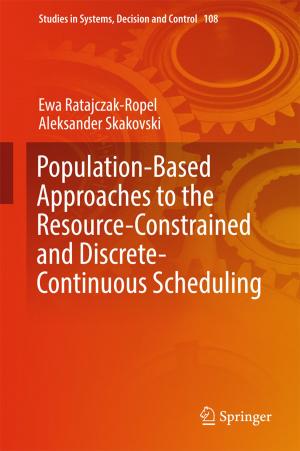The Impact of Information on Modern Humans
Nonfiction, Computers, Advanced Computing, Artificial Intelligence, General Computing| Author: | ISBN: | 9783319753836 | |
| Publisher: | Springer International Publishing | Publication: | March 6, 2018 |
| Imprint: | Springer | Language: | English |
| Author: | |
| ISBN: | 9783319753836 |
| Publisher: | Springer International Publishing |
| Publication: | March 6, 2018 |
| Imprint: | Springer |
| Language: | English |
This book features contributions from various spheres of socio-humanitarian sciences presented at the scientific and practical conference on “Humans as an Object of Study by Modern Science,” which took place in Nizhny Novgorod (Russian Federation) on November 23–24, 2017. The conference was organized by Kozma Minin Nizhny Novgorod State Pedagogical University and the non-profit organization “Institute of Scientific Communications.” Presenting the results of multidisciplinary studies as well as new approaches, the target audience of the book includes postgraduates, lecturers at higher educational establishments, and researchers studying socio-humanitarian sciences.
The complex study of humans by representatives of various socio-humanitarian sciences (philosophy, pedagogics, jurisprudence, social sciences, and economics) allows a comprehensive concept of the field to be developed. Selecting humans as an object of research opens wide possibilities for studying various issues related to their activities, while considering humans within multiple sciences means that the methods of induction and deduction can be combined to achieve precise results.
This book includes the results of leading scientific studies on the following key issues: establishment of an information economy under the influence of scientific and technical progress: new challenges and opportunities; information and communication technologies as a new vector of development of the modern world economy; specifics and experience of using new information and communication technologies in developed and developing countries; problems of implementing new information and communication technologies in the modern economy; and priorities of using new information and communication technologies in the modern economy.
This book features contributions from various spheres of socio-humanitarian sciences presented at the scientific and practical conference on “Humans as an Object of Study by Modern Science,” which took place in Nizhny Novgorod (Russian Federation) on November 23–24, 2017. The conference was organized by Kozma Minin Nizhny Novgorod State Pedagogical University and the non-profit organization “Institute of Scientific Communications.” Presenting the results of multidisciplinary studies as well as new approaches, the target audience of the book includes postgraduates, lecturers at higher educational establishments, and researchers studying socio-humanitarian sciences.
The complex study of humans by representatives of various socio-humanitarian sciences (philosophy, pedagogics, jurisprudence, social sciences, and economics) allows a comprehensive concept of the field to be developed. Selecting humans as an object of research opens wide possibilities for studying various issues related to their activities, while considering humans within multiple sciences means that the methods of induction and deduction can be combined to achieve precise results.
This book includes the results of leading scientific studies on the following key issues: establishment of an information economy under the influence of scientific and technical progress: new challenges and opportunities; information and communication technologies as a new vector of development of the modern world economy; specifics and experience of using new information and communication technologies in developed and developing countries; problems of implementing new information and communication technologies in the modern economy; and priorities of using new information and communication technologies in the modern economy.















